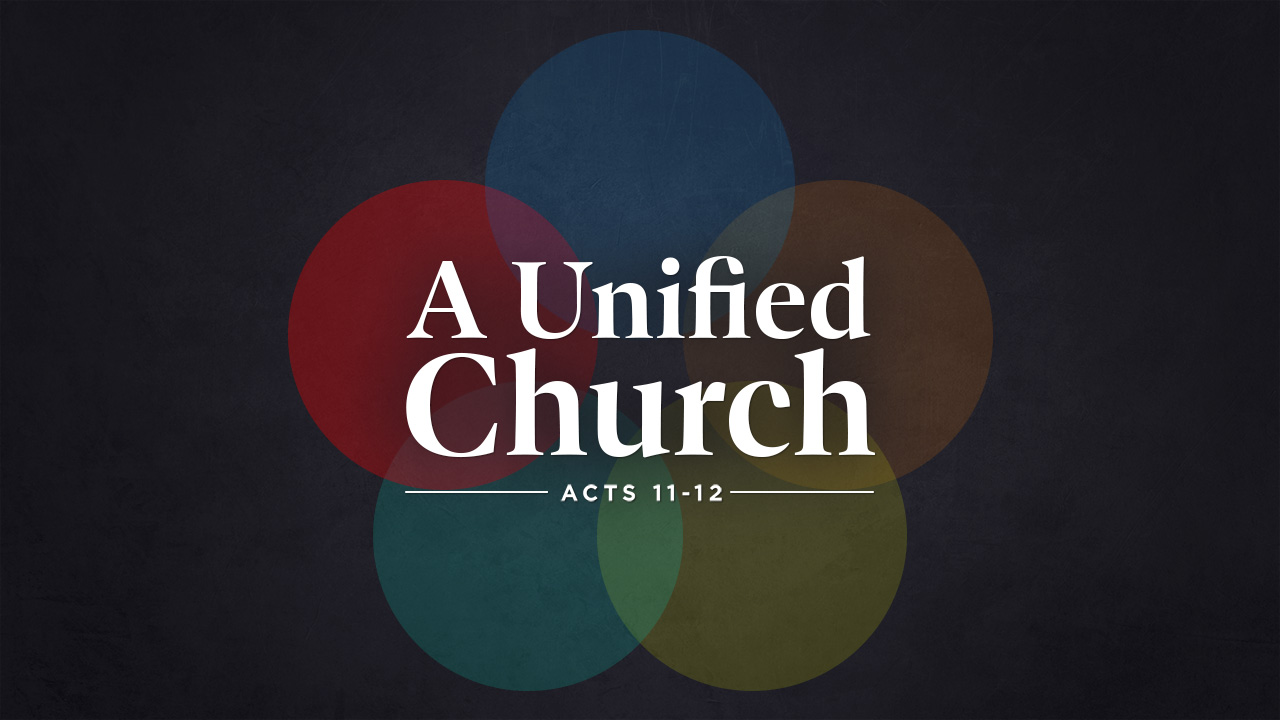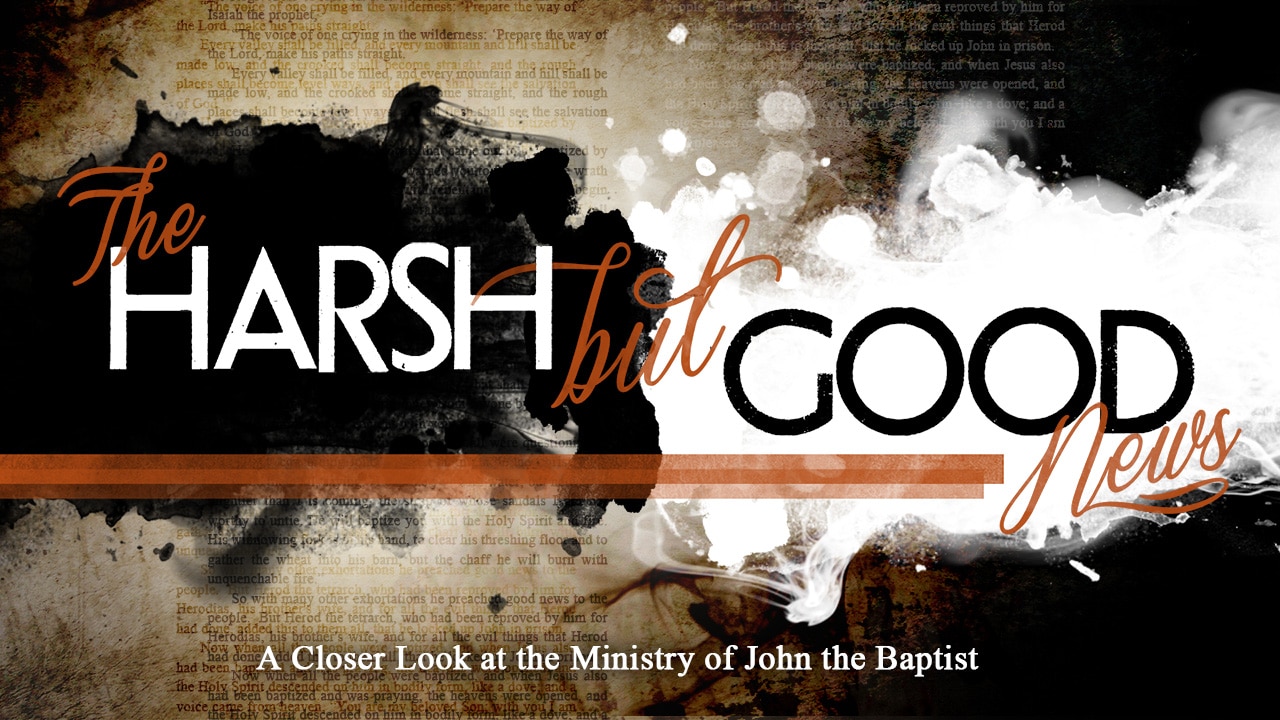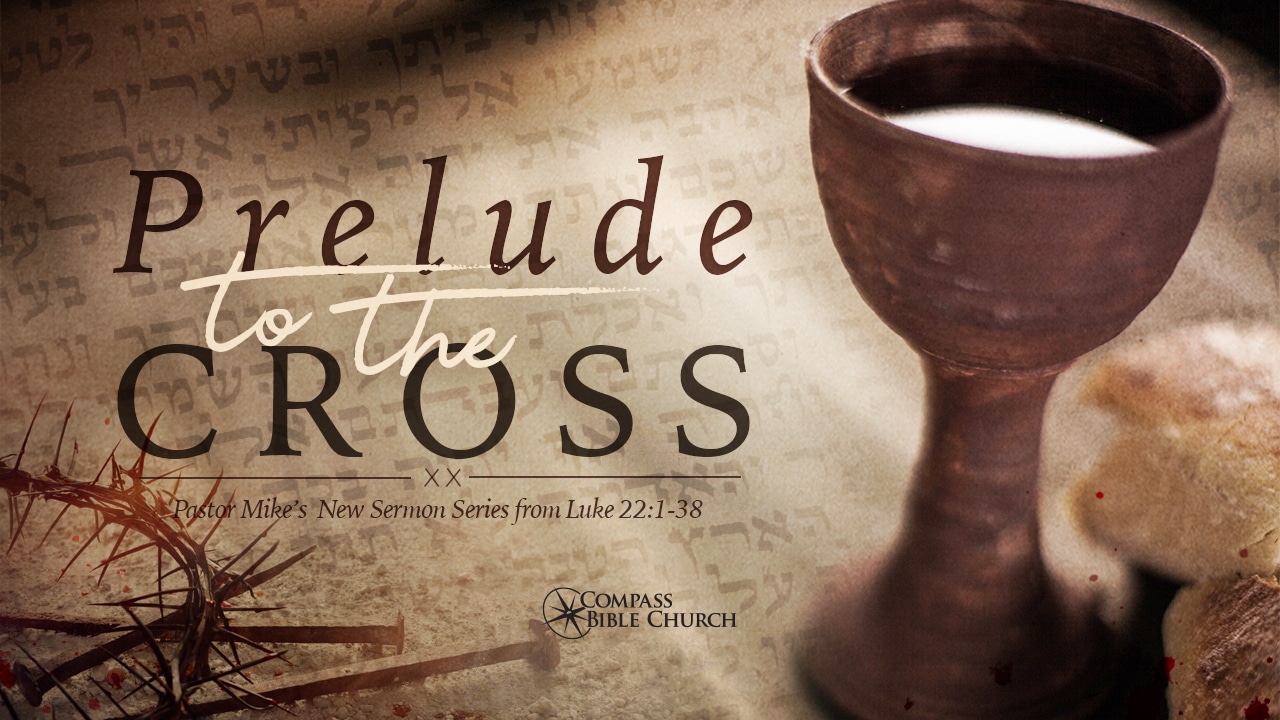Description
Earthly powers will always be subject to the sovereign judgment of God, our job is to humbly serve the King of Kings and promote his greatness throughout the earth.
Resources
Transcript
Download or Read Below
Unified Church – Part 6
Earthly Power & God’s Sovereignty
Pastor Mike Fabarez
Baptism weekends are always a great weekend for us to hear stories of people’s lives, not just kind of the sequence of their lives, but what God is doing so often in the background and you don’t even see it till you become a Christian, look back and see how God was working. It reminds me of I’ve got one particular computer program, but there have been others that pop up a window every now and then says, “OK, click this” or “Install this update,” whatever. It says, “Continue working on what you’re working on. You can close this window because this will all continue in the background.” Well, that takes a little faith, doesn’t it? Sometimes I wonder if it’s being installed or being unpacked or doing whatever it’s doing and always wondering if it’s working in the background. There’s a way, thankfully, a few computer nerds know, I’m sure you do, on Windows you’ve got the Task Manager. Apple users got the Activity Monitor. You can pull up a program that will at least show you, yes, it is still working, even if you don’t see it working. The windows closed, but there it is, doing the work that you want to have done in the background.
Jesus said in John 5, “My Father is always working,” contrary to the deists and so many founders of our country who did not think that God was a God who was actively working into the present. They often saw him as someone winding up a clock and letting it go. And, you know, we’re just on our own now at this point to do whatever we think God wants us to do. And while that’s a good step in the right direction, it is better than being an agnostic or an atheist, what we need to affirm is that God is always at work in the background. Occasionally, we get a chance to pop up the Activity Monitor and see that he is at work, and that’s what the Bible does for us so often. It shows us, look, this may be happening in the sequence of events in your culture or in your society, but here’s God at work. It kind of answers the “why.” It’s not just the “what” happened, but “why” did this happen? And sometimes we see that beautifully like we did in the testimonies this morning. These things happen. I thought it was bad, but here’s why God allowed this to happen and set this up in my life. And then here’s the product, and it’s a good product.
I mean, the Bible says that “All things work together for good to those who love God and are called according to his purpose.” We’ve got to look back at some point and say, “OK, I can see from some vantage point, certainly from eternity’s vantage point, that God was always working in the background. Acts 12 is like that. It’s a scene that is depicted at the very bottom of Acts Chapter 12. We’ve reached this place in our verse-by-verse study, verses 20 through 25, Acts 12:20 through 25. We see a passage of Scripture that you could pick up from the headlines and of course we do from secular history, non-biblical history, extra-biblical history, we learn about the death of Herod Agrippa the First and we can learn a lot of details about it actually about what happened.
But what’s interesting about pulling up the Activity Monitor of Acts 12 is it says, well, here is exactly what is happening from God’s perspective. Here is the work in the background behind the headlines as to why God did this. I’ve got a lot of questions about that in the everyday headlines I read, but it’s important for us to see it from a biblical perspective when God pulls the curtain back and says, “OK, you’ve read about the death of Herod, here’s why Herod died,” in this particular case. Now, I should have put the chart back on your worksheet just to sort out the Herods of the Bible. But this is Herod the Great’s, the one who killed the babies in Bethlehem, his grandson and his great-grandson, King Agrippa the Second is going to show up at the end of the book. He’s just called Herod here. He’s called King Agrippa later.
But of course, this Herod, Herod Agrippa the First grew up in Rome, was brought back to Judea to be the king of Judea and be in charge of this area, and he dies here in 44 A.D., A.D. 44, and we see the curtain pulled back. But I want you to look at this and see if we can’t learn a bit of the lesson of what we are supposed to learn. Why did God do this? What’s the reason God was working behind the background in this scene. Then see the very triumphant and optimistic statement at the end of the chapter, which started with Herod Agrippa the First killing James the Apostle. It seems like a bad time for the Church, but it ends with a very optimistic statement about, hey, God’s marching forward. He’s getting his work done. Yeah, you’re right. Bad things happened in Acts Chapter 12 verse 2 when Herod kills James, beheads him and then says, “Oh, you guys like that? Well, I’ll put Peter in prison as well.”
Well, God intervenes and says, OK, time for James to go. Time for Peter to continue in the Church. And so he gets him out supernaturally and now we get to the death of Herod Agrippa the First and God says, “Look, here’s why I took him out. Now the Church is going to continue on.” The guy persecuting the Church is executed by God, though no one knew that at the time if you were reading the secular newspapers of the day, you just know that he fell ill in the middle of a speech. But let’s look at this from the biblical perspective. I’ll read it from the English Standard Version. Acts Chapter 12, beginning in verse 20. Please follow along with your own eyeballs here as I read this for you.
Verse 20, “Now Herod,” again Herod Agrippa the First, “was angry with the people of Tyre and Sidon,” so up north, if you know a little bit of biblical geography go up the Mediterranean coast, you got this section up here in modern-day Lebanon, you’ve got Tyre and Sidon, these very important cities in the Old Testament. And there’s some kind of issue that makes Herod Agrippa the First mad at them. And so they want relief. We’re assuming here the power of King Herod is going to somehow make life for them a bad thing. They wanted to fix this conflict so, “They come to him with one accord.” So they send some kind of a group, some kind of entourage to Judea, which is particularly as we left off in verse 19 in Caesarea, a Roman port there down in Israel. “And they came to him and having persuaded Blastus,” the only time we have him mentioned in Scripture, the king’s chamberlain,” which simply means he’s like the personal high-ranking assistant of the king, “they asked for peace.”
We don’t know how he persuaded Blastus. Perhaps most people speculate through some kind of bribery or something, as often happens in the ancient world and even today. These lobbyists here come to Blastus and say, “Hey, get the king’s ear. Let’s make sure we fix this problem.” Whatever’s happening, whether it’s a food embargo or whatever it is, we’ve got to fix it “because their country depended on the king’s country for food.” So King Herod was controlling the exports and he says, we’ve got to fix this. So he fixes it. “And on an appointed day,” which historians tell us is probably Claudius the emperor’s birthday, “he took his seat on the throne, and he delivered an oration to them.” I even like the word there. Talking about a speech that’s good, here’s a good speech. He’s speaking and it’s so good, it’s just that the “people were shouting, ‘The voice of a god, and not a man.'”
Which by the way, the historians tell us that what’s going on here is not just a great speech that he’s giving, but he’s dressed in a silver shekel kind of outfit, a robe that was made of silver pieces and the sun just happened to be on the Mediterranean coast there at a place where it just made a brilliant display. So he’s speaking a great political oration. He’s just been the hero of solving this embargo, and he’s got the sun hitting his robes just right. I mean, talk about royal regalia. This is not like crushed red velvet. It’s not a robe like that, but it’s a shiny silver coat that he’s got on. And I mean, the scene was just perfect, right? Having a good hair day and everything. This is a good day for Herod Agrippa the First, and they say, you are amazing, “the voice of a God and not a man.” You are just like what the emperors want, to be deified. You are reaching into the place as often happened in the ancient world where your authority is so absolute, it’s so great, you are the King of Kings and the Lord of Lords. You’re to be deified here.
Well, “Immediately,” it says, verse 23, “an angel of the Lord struck him down, because he did not give God the glory.” See that word “because”? That’s what we don’t get from any secular description of what happened. This is “because,” God had a reason for this, “he did not give God the glory, and he was eaten by worms and breathed his last.” Now, secular history does tell us that he fell down in the middle of this and he suffered with some kind of abdomen pain.
So this is probably some kind of, you know, parasitic intestinal disease that he’s got and they find that out after the fact. But he dies of this parasitic problem in his bowels and he’s in pain and it happens all while he’s speaking. He falls ill, he goes to his bed-chamber. They put him there in the royal place, the royal home in Caesarea, and he languishes for four or five days historians tell us, and he dies. I don’t know what you’re picturing like worms externally eating, but that’s not the picture. He dies of some kind of intestinal problem of worms. It’s gross, no matter what, right? Worms are not what I want as part of my eulogy when I’m dead.
Anyway, “But the word of God,” again, here’s another great word. Not only because here’s what happened, but here’s why it happened, what God was doing working in the background. But here is what’s happening even though the chapter started as a really bad chapter for the Church. Much like we heard this morning in the testimony, COVID, right? COVID was the best thing to happen to my spiritual growth. Did you hear that testimony? Like, OK, that’s interesting, right? The bad thing that happened ends up being leveraged for good. It’s not as though it’s just like God makes the best, right? When you get lemons you make lemonade. It’s like God had planned this from the beginning. Time to promote James from earth to heaven. Time for you to see that I have control over these sovereign powers of the earth and I can get Peter, the pastor here, out of prison anytime I want.
And not only that, when a leader does something and I want to make a point, I can just knock him out and the Church is going to learn here’s why. It’s because he didn’t give glory to God. Now I’m thinking if you want to kill Herod Agrippa the First why don’t you kill him for killing James the Apostle. Right? I’m thinking that’d be a good thing. I think I’d much rather you kill him for that than for this, but that’s not what God does. God here makes a point. It’s like Ananias and Sapphira when they go and in front of others in the Church, they act like they gave more money to the Church than they did. I’m thinking there’s a lot of things Ananias and Sapphira probably did a lot worse than that. But God chose that as the reason and then pulled the curtain back and said, “Here’s the Activity Monitor. Here’s why I did this.” God does that through Scripture and he shows here’s the reason.
And the Church, by the way, in Acts 5, they fear… fear fell upon the whole Church when they read, “Oh man, God really does hate lying lips,” as Proverbs Chapter 6 says, God hates that. This is a big deal to God. Sometimes we need the reminder this is a big deal to God. So here we have murder, which I think everyone in the Church knew that was a bad thing. But maybe there were some Christians starting to applaud along with others there in Caesarea, saying, “You know that Herod Agrippa the First, he ain’t half bad, you know. Maybe all of his press shouldn’t be believed. I mean, the guy just solved this problem we’re having with our northern border. He’s resumed… I mean, the ports are no longer… we don’t have, you know, container ships out there in the harbor anymore. He’s fixed it all, amazing.”
And God goes, “Hey, Church, you just need to know this. I’m about advancing my cause and having the word of God go forth strong and multiplied. And I don’t want to get sidetracked here with what’s going on in the political powers and earthly powers that be. You need to know God will not share his glory with anyone.” And so God pulls the curtain back and says, hey, get the point. They got the point about lying, did they not in Acts Chapter 5? God wants them to get the point now about pride and arrogance here in Acts Chapter 12. And it certainly helps motivate the Church to know this is what we’re all about. We’re not about this.
So this is a very important thing for us to catch. If you’re taking notes, and I wish that you would here in the shorten time that we have, if I look at the beginning of this in that he’s standing there and he’s being hailed as a god and not a man. Right? And now he’s going to die for the fact that he doesn’t give glory to God in all of this. I just want to say, wow, that’s a big deal. There are a lot of times someone said to you about your cooking or your outfit or, I don’t know, something you did at work to secure some deal and maybe you sat back and your chest puffed out a little bit and just like, you know, yeah, you took a little credit for that that you shouldn’t have in the way that Herod did here on his, you know, day of his great oration when the sun was hitting his silver robe just right. And I’m just saying this: like when it comes to him, God is seeming to hold him to a higher standard, which is always the case, by the way.
When there’s a level of exposure, when there’s a level of influence, even in the church, when he says “not many of you should become teachers.” We read that today in our Daily Bible Reading in James Chapter 3 verse 1. Why? Because “we who teach will incur a stricter judgment.” He is being judged for something that all kinds of people in Caesarea, all kinds of people in Judea, all kinds of people in the ancient world have done. And you’ve probably have done it this week at some level. And yet God says, I’m going to make an example of him and I’m going to make an example of him in a dramatic way, in part because he is this big-time leader and leaders are going to be scrutinized at another level, not just by people who listen to their speeches, but also by God himself.
So we need to understand this, number one, “Earthly Power is Hazardous.” You got to realize that. Earthly power is hazardous. When they say, why don’t you join the school board or why don’t you come and be on the city council? And why don’t you become a, you know, a county supervisor? Why don’t you run for governor, (which I might encourage you to do)? I’m just going to tell you this, you ought to beware, because once you step into those situations, here’s the problem, right? God is going to hold you to a higher standard any time you step into leadership.
We heard stories even in the baptismal this morning about becoming parents. Think about that. We talk about two dogs, two cats, all that. That’s one thing, right? It would be good if you fed your dog every day. But you know, having a child raises things to a whole new level. That simple level of leadership of becoming a parent, you sense it, you feel it, you’re no longer just living for yourself. Getting married is that way. Becoming a parent is that way. Maybe starting a business is that way. Becoming a manager at work is that way. It becomes an increasingly difficult thing for us to think that this is not a hazard for me to climb the ladder, whatever it might be in terms of leadership.
It is a risky thing. It is a hazardous thing, and I just want us to understand that, not only for ourselves, I want to understand that for the people around us, we need to fear for them. Wow, you are skating on thin ice just because you’ve stepped up into the higher rung of leadership and influence in other people’s lives. And some of the evidences of him having an issue here, a problem is, you know, maybe even his anger. I mean, I don’t know what angered him with the Sidonians and those from Tyre, but I at least jotted this reference down and I thought about the connection in Proverbs Chapter 13 verse 10. It talks about pride, or “insolence when there is that comes nothing but strife.” The more prideful someone is, the more arrogant someone is, the more you often find the contention, right?
They used to be so nice until they became this leader, and now they’re more and more angry, and they’re temperamental and they’re short-tempered. And sometimes that’s a sign that something has gone wrong in their heart as it relates to this leadership position. They like to throw their weight around, which we don’t have time to look at. I wish we had, but in your small group time, as you prepare for that, I do turn you to Psalm Chapter 10 to talk about how that kind of leadership, that kind of power and authority comes oftentimes with a lot of abuse of that authority, and it happens in part because of the view that we have of ourselves.
And there’s a lot of stuff there in Psalm 10 for you to sort through before you go to your small groups this week to think through that kind of self-importance and that autonomy and that separation from accountability, that lack of understanding that God’s eyes are in every place keeping watch on the evil and the good and when the evil and good is compounded by the influence in other people’s lives, God’s going to hold that person accountable.
Earthly power is a hazardous thing. What God wants from the stewardship of leadership is that we be found faithful and think rightly about the role. And I quote that from First Corinthians 4 that it’s required of a steward that he’s found faithful. All leadership is stewardship, right? Whether you run a small business or you’re a mom or an owner of a company or a pastor or a governor or the president. With that, there’s a stewardship. As Romans 13 says, you now become a minister brokering God’s agenda in the world. “Oh, that’s for pastors.” No, no, that’s for every leader. Romans Chapter 13 says that even our political leader, even Herod, even the emperor of Rome, was a minister of God to punish evildoers and to give approval and favor on those who do good. The good and bad, you are simply a broker of what God needs done.
Just like in the Garden, God has them tend the Garden, exercise dominion, Adam and Eve go in there and tend the Garden. They’re exercising dominion, and they’re doing this as stewards of the Garden. And when you have people underneath you, the influence that you have, that is a stewardship. So every leader you need to look at them like, wow, they have a stewardship, they’re going to be held to a higher standard. There’s a lot there to think through. And let me just turn you quickly to this passage. Not that we have any time for that, but Luke Chapter 22 verse 24. As you scurry to Luke Chapter 22 verse 24, I just want you to see what Jesus said about leadership. I want to think about others, but I want to think now too about yourselves.
Verse 24. “A dispute arose among them,” Luke 22:24, “as to which of them was to be regarded as the greatest.” Now why would you care about that? Well you care about that because, you know, Herod cared about that. I mean, he could have even had aspirations to be in Rome in the Senate, or maybe be the emperor? Who knows? Right? I don’t think that was in the cards for him. But the idea of climbing in leadership, even in his childhood relationship with Claudius and all the things that he went through, there was a sense in which I care about my pecking order, the rank that I have here.
And he said, well, remember this. There’s a different view of leadership among people who aren’t thinking rightly, among the kings of the Gentiles. They “exercised lordship over them, and those in authority over them are called benefactors.” Right? Ultimately, this is something where they are seeing this for themselves. I heard an interesting statement in the baptismal tank this morning. It was a combination of words that just made me think immediately of Herod Agrippa the First, you know, the idea of wanting to please people, Janea said, and being selfish. Remember that because it pleased the Jews, Herod Agrippa said, “Well, if you like that, you can like me even more. I’ll make you even happier by putting Peter in prison.” Well, the connection, the underlying driving of that is like, “I want to be the benefactor. I want to be the one who you look to, like I’m the do-gooder. I want my reputation to be advanced. I want to be seen as a great person,” and caring about people’s thoughts of you, right?
I mean, Herod certainly wasn’t thinking, “How can I broker the best situation for the people of Judea?” I mean, there’s this underlying self-serving behavior that he says is so common among people who don’t think rightly about leadership, verse 26, “But not so with you.” Well, it is so that’s why he’s had to say it, because in verse 24, they are thinking wrongly, right? “I want to know if I’m the greatest.” And he says that’s not how it’s supposed to be, verse 26. “Rather,” now note this, look at it, “let the greatest among you become as the youngest.” If you’re the youngest in the family like I was, right? You know what it felt like, “I hate being the youngest. My muscles are smaller than my brothers. I just like to have more weight to throw around here.” But there needs to be that sense of self-understanding, that willingness to see yourself as I’m not all that, I’m not that important, it doesn’t matter, really.
No, if I’m going to lead, if I do get a position of leadership, bottom of verse 26, well then, “I’m going to serve.” I want to see if I can help. How can I be helpful? “For who is greater,” verse 27, “the one who reclines at the table or the one who serves?” OK, think that through, right? You’re sitting there at Ruth’s Chris or, you know, some kind of nice meal and someone is serving you and they’re coming back and forth, “Can I fill your water? Do you need more bread?” All that stuff is going on and you think, “Oh, well, I’m the one with the money here paying the meal,” you know, it’s clear the pecking order, right? And he says, Well, that’s not how it is with us. “Is it not the one who reclines at the table?” Of course it is. That’s how everyone would think. “But I’m among you as one who serves.” He’s already proven that if the feet need to be washed, if no one else is doing it, he’s going to pick up a towel and wash the disciples’ feet.
So look at me, you know, I’m the greatest in this 13 group that I got. And I’m the one who’s constantly looking out to see how I can broker what is good, how I can serve. Verse 28, “You are those who have stayed with me in my trials, and I assigned to you, as my Father assigned to me, a kingdom.” I guess he’s anti-authority, flatline democracy, I don’t want any leaders? That’s not it at all. No. “That you may eat and drink at my table in my kingdom and sit on thrones,” not folding chairs, thrones, not on the ground, “on thrones judging,” administering, “the twelve tribes of Israel.” Does that sound like a heady, authoritative position? Well, that’s how it all started, verse 24. Why didn’t we just get to that, right? Who is the greatest among you? You’re all going to be great, you’re all going to lead a tribe of Israel, right? That should be like, OK, answering the question in an affirmative.
No, but he says it’s not that there are not leadership positions, and God may have called you to a leadership position. And if you’re thinking about how I can learn from Herod Agrippa the First, I want to make sure I take that as a hazardous position. And I understand this, I’m not to act like I’m not a leader. There’s authority in that. There are decisions to be made. I know my decisions affect other people. I need to think like a leader, but you need to understand leadership is a stewardship to discharge for the good of those who you serve. And that’s a principle I hope you’ve heard before, but I just want to remind you of that this morning, because God, when he sees Herod not living that way, says, “I’m going to make it a point, an example to the early Church of him thinking he’s great.” And they said, “Oh, he’s great. He’s great.” Don’t clap at that. That’s the wrong thinking. That’s not how it works.
As a matter of fact, he’s always opposed to the proud. Herod is going to now drop down with a stomach ache, and be hauled off the platform back into the chamber there in Caesarea. He’s going to writhe in pain for four or five days and then die of intestinal parasites. That’s awful. Well, why? Because, if you’re taking notes, number two, you’ve got to remember that “God is Opposed to the Proud.” He always is opposed to the proud.
Ezekiel 28. I mentioned Ezekiel 28. I don’t have time to look at it. But Ezekiel Chapter 28 reminds us of the copacetic experience of heaven at one point. Everything’s great. I’ve got a pecking order because I believe in authority. There’s not a flat line. We got a pyramid of structure and I got a guy here up at the top of the angelic class, and he’s a seraph. Those are just rankings, the seraph, he’s at the top of the top, the burning ones, he’s like closest to me. He’s got the office next to my corner office God says.
I’m not like him. I’m completely other, I get it, transcendent, but I got leadership among this staff and here are these guys who are important. And it says at one point there his heart was filled with pride and self-promotion, “and I want glory. I’d like to be like God, I want it for myself. I don’t see this as an opportunity to serve the angelic structure. I see it as an opportunity for self-aggrandizement, for self-promotion, for self-adulation.” And if the other people are saying, “you’re doing such a good job, Lucifer, such a great job at your job.” Now it was like, Hmm, OK. And because he did not give God glory, the angelic class was forever changed and a third of the rebellious angels who wanted to live by that set of rules went with him. And we saw everything collapse because God is opposed to the proud and he always has been, because there’s only room for one proud person in the universe, only room for one. The one who deserves all glory, all dominion, all power and all honor.
And I don’t care how much leadership you have. Even when Daniel the prophet says to Nebuchadnezzar, you are the king of kings, you are the king of kings, O may the king live forever. All of the necessary salutary statements of honest respect for leadership, Daniel has it. But he says, “You know, here’s the problem though. You need me to tell you that dream that you just had, that’s going to say what’s going to happen. That dream, let me interpret it for you. You’re going to be brought low. You’re going to be brought low because you are going to stand up, here’s how it plays out, on your veranda one day in Babylon going ‘Look at all the things my hands have made. Look at how awesome I am. Look at what I built. Look at how great this is.’ You’re going to do that. And at that moment, you’re going to be struck down and in seven periods of time you’re going to go eat grass like an ox out in the field.” Do you remember that passage?
And in Daniel, Nebuchadnezzar gets taken down to act like an animal now running around like a crazy person. And it ends by him saying, “Now I know.” Matter of fact, I’m just going to read it for you. I don’t have time to turn you there. What a great close to this whole thing. After the 12 months passed by he says, “My mighty powers,” this is Nebuchadnezzar talking in the first person, “my mighty power as a royal residence and for the glory of my majesty,” I’ve done all these things. He’s taken low and it says, here’s the bottom line, so much I wanted to say on this one, right?
He gets to the end of it. He gets his mind back. He comes to himself. His reason returns to him. And he says, I know this “for God’s dominion is an everlasting dominion,” his authority, “his kingdom endures throughout every generation; all inhabits of the earth are counted as nothing, he does according to his will among the host of heaven and among the inhabitants of the earth; none can stay is hand, who can say, ‘What have you done?’ My reason returned to me, the glory of my kingdom, my majesty, my splendor all returned to me, my counselors and my lords sought me, I was established in my kingdom, and still more greatness was added to me.
But he says, “Now I, Nebuchadnezzar, praise and extol and honor the King of heaven, for all his works are right and all his ways are just; and those who walk in pride he is able to humble.” God hates pride probably more than you think, and I think we need to always remember that if ever in any situation as a mother looking at your children, as a business owner looking at your business, as an administrator in any regard, when you sit back and see the fruit of that give glory to God. Because God is the one who grants all of that. He puts people in positions of power.
Read two humble people, I don’t know if I put this in the worksheet or not, Hannah in First Samuel Chapter 2 and Mary in Luke Chapter 1, they pray this song. You don’t have to be struck low to get the point. They were just granted a gift that they knew they didn’t deserve because of their humble hearts. And both Hannah and Mary sing a song about the greatness of God, how he raises people up and puts people down, puts people in power, takes them down to nothing. God is a God we’re completely dependent on. Herod can be struck down with worms any time God chooses. Or he can continue, as he did graciously to Nebuchadnezzar, the pagan king of Babylon, can continue to give him majesty and greatness even more than he had before, because he simply recognizes that the glory ultimately should go to God. Do you think that way? You should.
That’s one lesson the early church had to learn. It’s what drove them back to what they were called to do. Look back at our passage here in Acts Chapter 12 verse 24, “But the word of God increased greatly.” The word of who? Of God. Not “Now a voice of a God. You’re great. Look what you’ve done for the embargo and you fixed the problem with Tyre and Sidon.” There’s only one God, there’s only room for one person to be the center of the universe. And he’s already got the position and you don’t qualify and you’re temporal and you’re transient and you could die of parasites this week. So you just need to realize God is God, and we need to get his word and what he says about himself, about reality, about our sin, about redemption. We got to get it out to more and more people.
Matter of fact, that’s what we’re going to give ourselves to. “Barnabas and Saul returned from Jerusalem.” They’ve completed their service. Remember, they brought from Antioch the gifts to help them through the famine? “Bringing with them John, whose other name was Mark.” Remember Mary’s house? That’s where that was all going on in Jerusalem when Peter gets out of prison and he goes on a missionary journey. We learn all about that starting in Chapter 13, as the focus shifts from Jerusalem and all that was happening there, in and around Jerusalem, to the ends of the earth and the Apostle Paul becomes center stage as the key missionary to the Gentiles. All that taking place, this transition reminds us that that’s the whole point of the Church is to advance the fame and the greatness of Christ and God and the gospel.
Number three if you’re taking notes we got to refocus on that all the time. What’s the point of everything I do? It’s to “Refocus Myself on Promoting God’s Greatness.” Daniel did that. When called upon he did that. He said, “Listen, I understand King, you are great and I’m going to give you all the proper salutations. ‘O King of Kings live forever,’ but you need to remember God is the God of heaven.” There’s only one God. Hey, you can give a congratulatory, respectful greeting to people in positions of power. But there are times to remind them there’s only one power, you only have what you have because God has put you there. When Pilot said, “Hey Jesus, I have authority to let you go. I don’t know if you know who you’re talking to here.” And Jesus said, “You wouldn’t have any authority if it weren’t for God giving it to you.”
Well, that’s so important for us to catch. That God is a God who is constantly reminding us that the greatness of the king is the one that we need to be promoting over and over and over again. We learn that in Scripture, and that is what the gospel is all about, trying to get people to understand that with clarity. Here’s a passage. Let me quote this great passage from First Timothy Chapter 6, First Timothy Chapter 6 verses 14 through 16. He speaks about the coming of our Lord Jesus Christ, our Lord Jesus, our Lord, he’s in charge, Jesus he’s the savior. Christ, he was the expected one of the Old Testament, prophet priest and king, “which he will display at the proper time.” You don’t see him reigning now on earth, but you will see him reigning on earth. But he’s still in charge.
Always working in the background, soon to be working in the foreground. Just wait till this application gets unpacked. You’re going to see some amazing things when Christ appears, “which he will display at the proper time – who is the blessed and only Sovereign,” there’s only one sovereign, “the King of kings and Lord of lords.” There may be kings of kings because they’re high up on the pecking order just like Lucifer was an angel of angels. Seraphim, he wasn’t cherubim, he was seraphim up at the top, right? This picture of the greatness of someone on earth. Well, they’re all outranked by God, “who alone has immortality, who dwells in unapproachable light.” That’s a picture of the transcendence of God. No one is going to touch the category, and that’s the category that we get a chance to tell people about.
When John the Baptist stands before Herod and goes, “Listen, I get it. You are a powerful man, but you’ve got to realize that you are subject to the rules of God.” There’s a time for the Church to warn secular leaders, as he does. As Paul does when he stands before King Agrippa the Second, this guy’s son. He has to remind him, “Listen, you need to know that you’ve got a guy, Felix here, Felix is doing things that he should not be doing. You’re doing things… Listen, you just need to understand there’s only one sovereign, one potentate. There’s only one person in charge, and all of us are subject to him.”
Justin Martyr wrote in the first generation after Christ. He lived in the early second century. He wrote the Roman Senate, and he says, “I just got to warn you, we’re all about supporting the government as Tertullian wrote. Tertullian said, “Hey, we want the emperors to do well. We want the armies to be brave. We want everything to work well because we want to live in peace and do what we’re called to do, which is to promote the greatness of God,” to paraphrase Tertullian. Justin Martyr writes, “Just remember this though. We’re going to forewarn you. You will not escape the coming judgment of God if you continue to operate unjustly. And so we cry out to you. See what is pleasing to God and let that be done.”
There’s a time for that. I’m not much for activism in politics, but you do need to know that that’s the warning when you get a chance to speak to power, quote unquote, the warning isn’t, “Listen, be on the right side of history based on polls and trends and ideas and thoughts of people’s hearts.” It’s about a God who’s in charge who will one day hold every leader accountable. That’s why we pray for them. First Timothy Chapter 2 verses 1 through 4, we pray for our leaders. We want God to help manage them through the things that they’re going through, the decisions that they make, that it might benefit the Church’s mission to promote the greatness of God. That’s the idea. “The kingdoms of the world one day will be displaced by the Kingdom of our Lord and of his Christ, and he will reign forever and ever.”
Earthly power is hazardous. If you have some be warned. If you know people in power it’s not a bad idea from time to time to warn them. What we don’t want is pride. God was always opposed to the proud. Our job is to promote the one who’s at the center of the end of history, which is the Lord Jesus Christ.
Would you stand with me? Let me pray for you as we let you go. Good day of testimonies. I hope that was encouraging for you in our baptisms. God at work behind the scenes. Just know that right now, with inflation and gas prices and Congress and printing trillions of dollars and, you know, the craziness, we don’t even know who men and women are anymore, just remember this, right? God is at work in the background. God will hold leaders accountable. I understand the Herod looks like he’s out of control cutting people’s heads off. Justice is being dismissed left and right. But just know that even though Satan is the god of this world, there is a God who from time to time pulls the curtain back that reminds us that he’s working in the background. John Chapter 5. What is it? Verse 17, “My Father is always working.” Always working. So we don’t doubt that.
Let’s pray. God, help us, please, as Christians in the midst of a changing culture to trust that you are a God who holds every leader accountable and Herod Agrippa the First would be the first to testify to that as Nebuchadnezzar did in the Old Testament, that Babylonian king of the sixth century knew what it was, the sixth century before Christ, knew what it was to be humble. And you know how to humble the proud. So God, keep us from pride. Let us humble ourselves so that you don’t have to step in and humble us. Let us judge ourselves so that we don’t have to be judged. Let us be the kinds of people who when we’re put in positions of leadership, we don’t act like they’re not real positions of leadership. They certainly are and you expect us to discharge that duty, that stewardship of leadership for the good of other people, for the service of the organization, the service of the people who we’re leading.
God help us always to realize where the glory goes, where all the credit goes, where all the honor and the dominion and the greatness of anything, it ultimately goes back to the only immortal one and that’s you, God. We’re here today on this earth, at least and gone tomorrow. So we look forward God to the day when in our resurrected bodies, we can sit in a kingdom in a place that you put us under the leadership and authority and sovereignty of the Lord Jesus Christ who comes back for us. We pray you come quickly, even as we’ve heard this morning the testimonies.
In Jesus name. Amen.










Reviews
There are no reviews yet.